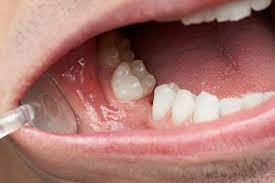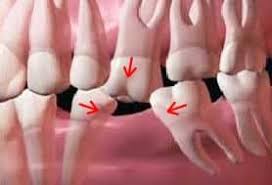
Missing Tooth: Causes, Consequences, and Solutions
A missing tooth can affect more than just your smile — it can influence your oral health, confidence, and even your overall well-being. Whether you’ve lost a tooth due to injury, decay, or other reasons, understanding its impact and knowing your options is essential.
What Causes Tooth Loss?
Tooth loss can happen to anyone, and it occurs for a variety of reasons, including:
Tooth Decay: Severe cavities that go untreated can weaken the tooth structure, eventually leading to tooth loss.
Gum Disease (Periodontitis): This is one of the leading causes of tooth loss in adults. Advanced gum disease damages the supporting tissues and bones around the tooth, causing it to loosen.
Trauma or Injury: Accidents, sports injuries, or falls can lead to a knocked-out tooth.
Congenital Absence: Some people are born missing one or more teeth due to genetic factors.
Other Health Conditions: Conditions like diabetes or osteoporosis can contribute to tooth loss by affecting bone and gum health.
Why Replacing a Missing Tooth is Important
Many people think that a single missing tooth isn’t a big deal, especially if it’s not in a noticeable spot. However, ignoring it can lead to several oral health issues:
Shifting Teeth
Adjacent teeth may shift into the gap, leading to misalignment and bite problems.Bone Loss
The jawbone in the area of the missing tooth begins to deteriorate over time due to a lack of stimulation from chewing.Difficulty Chewing and Speaking
A missing tooth can make it harder to eat certain foods or pronounce certain words clearly.Changes in Appearance
Missing teeth can alter the structure of your face, causing it to look sunken or aged over time.Increased Risk of Dental Issues
Gaps in your smile make it easier for plaque and bacteria to accumulate, increasing the risk of gum disease and decay.

Treatment Options for Missing Teeth
Modern dentistry offers several effective solutions for replacing missing teeth. Your dentist can help you choose the best option based on your needs, budget, and oral health condition:
Dental Implants
A dental implant is a long-lasting solution that involves placing a titanium post into the jawbone to act as an artificial tooth root. A crown is then attached, creating a natural-looking replacement. Implants also help preserve bone health.Dental Bridges
Bridges are fixed prosthetics that fill the gap by anchoring to adjacent teeth. They are an excellent option if the neighboring teeth are healthy and can support the structure.Dentures
Dentures are removable appliances that can replace multiple missing teeth. They come in partial or full sets, depending on your needs. Modern dentures are more comfortable and natural-looking than ever.Resin-Bonded Bridge
Also known as a Maryland bridge, this option is less invasive and ideal for replacing a single front tooth.Orthodontics
In some cases, braces or aligners can help close small gaps caused by missing teeth, especially if no major tooth replacement is necessary.
Preventing Tooth Loss
While some causes of tooth loss are unavoidable, many are preventable with proper oral care:
Brush twice daily and floss regularly.
Visit your dentist every six months for checkups and cleanings.
Wear a mouthguard during sports to protect your teeth.
Address dental problems, such as cavities or gum disease, early.
Living with Confidence After Tooth Loss
Losing a tooth can feel discouraging, but it’s important to remember that you’re not alone. Millions of people experience tooth loss, and advances in dentistry mean there are excellent solutions available.
A missing tooth doesn’t have to compromise your quality of life. Consult your dentist to explore your options and restore your smile and confidence.
